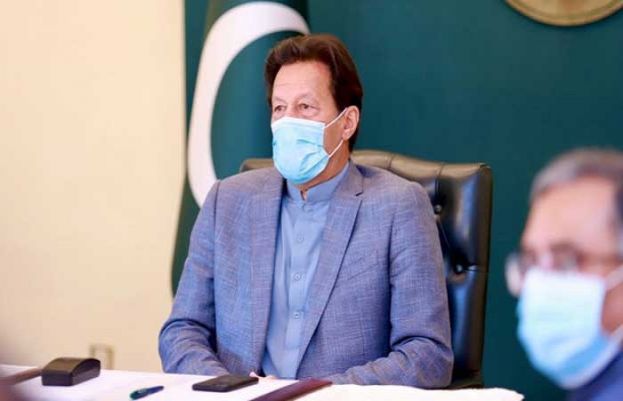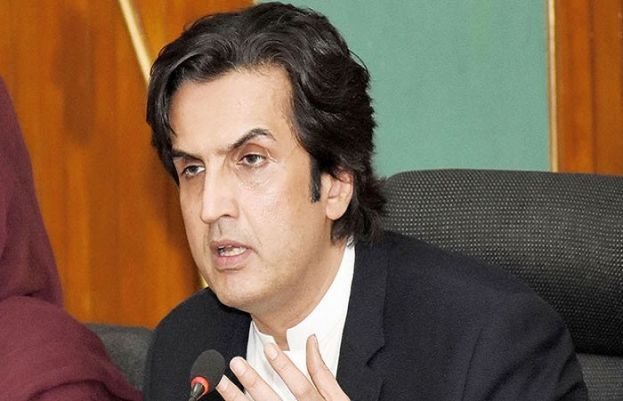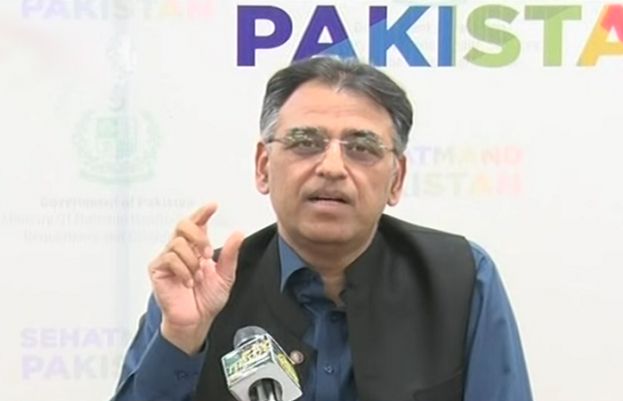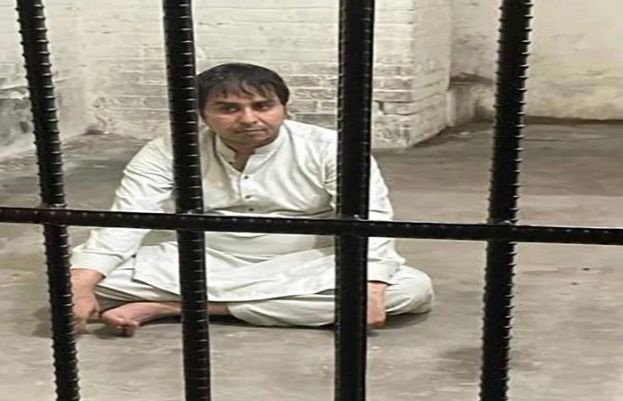
The D-8 Organisation for Economic Cooperation is a group that aims to enhance development cooperation. Aside from Pakistan, other member countries are Bangladesh, Iran, Turkey, Malaysia, Egypt, Indonesia, and Nigeria.
The theme for this year's conference was “Partnership for a Transformative World: Harnessing the Power of Youth and Technology.”
While virtually addressing the 10th D8 summit in Dhaka, he said harnessing technology, promoting innovation and investing in the education, skills and training of the youth was an urgent task that must be prioritised by all member countries.
"Today, the world boasts the largest number of young people in history. Even before the pandemic struck, around one-fifth of the global youth was unemployed and did not have the education and the skills to equip them for the 21st century," said PM Imran Khan.
He said the D8 countries "owe it to our youth" to turn this around, noting that the youth population in these countries numbers 550 million.
"Our youth has not only the potential to optimise our opportunities, but also overcome our common challenges," the premier said.
"They are entrepreneurs, business innovators, technology pioneers, educators, activists, artists, and journalists.
"We must create new opportunities for this predominant component of our population," the prime minister added.
Speaking of Pakistan's efforts in this regard, the prime minister said that through programmes such as Kamyab Jawan, Hunarmand Pakistan, a Youth Entrepreneurship Scheme, and Digital Pakistan, the country aims to facilitate its youth.
'Partnerships essential in a rapidly transforming world'
The prime minister noted that the rate of change in the world has intensified over time.
"Information and technology breakthroughs are fast transforming science fiction of yesterday into today’s reality," he said.
Under such circumstances, no single country can address the complexities of a changing world in isolation, PM Imran Khan underscored.
"Partnerships are essential. I am happy that, in D-8, we have a platform to work together for mutual benefit and win-win solutions," the prime minister said.
The prime minister said that the D-8 would do well to prioritise the following three areas while dealing with the rapidly transforming world:
Emphasising efficiency and productivity
Firstly, as net producers of primary global commodities, the D-8 must conceive projects that harness technology for supply-side improvements, with special emphasis on efficiency and productivity.
With costs of transportation and communications improving due to innovations, the D-8 members must partner to keep pace with logistics and global supply chains.
Jointly tackling disruptions in labour markets due to technology
Secondly, the D-8 should brainstorm ideas to insulate its members from disruptions in labour markets due to technology and innovations.
As automation substitutes for labour across the world, the labour-intensive economies of D-8 face challenges of unemployment and social disruption.
Push back against 'vaccine nationalism'
Thirdly, the D-8 should call for COVID vaccine to be treated as a global public good, ensure equity, affordability, enhanced production and timely supply to save lives.
"We must push back against vaccine nationalism and undue export restrictions. The global vaccine manufacturing companies must either speed up production or share their technology and expertise with developing countries for adequate vaccine supply," said the prime minister.
The prime minister also proposed a five-pronged roadmap to realise the vision of D-8 countries:
Resource mobilisation
Mobilising financing and resources to recover robustly from the economic and health crises induced by the COVID pandemic, is of utmost importance, said the prime minister.
"To address the unique economic and financial challenges faced by developing countries as a result of the pandemic, I have already suggested a 5-point plan. This includes: debt relief; creation and redistribution of Special Drawing Rights (SDRs); mobilization of climate finance; eliminating illicit financial flows; and return of stolen assets to developing countries.
"It was in this context that I called for a “Global Initiative on Debt Relief” last April," PM Imran Khan said.
He invited the D-8 members to consider these five points and join in advocacy for COVID related relief measures.
Expansion of trade
PM Imran Khan said the D-8 countries must take concrete actions to achieve the target of expanding intra D-8 trade from currently around US$100 billion to US$ 500 billion by 2030.
"It should include measures like simplification of border procedures, enhancing institutional linkages, and operationalising new initiatives. We welcome ideas like the D-8 Payment Card which would enable transactions in local currencies," said the premier.
Youth engagement strategy
The D-8 should develop a “Youth Engagement Strategy” focused on promoting cultural, educational, and scientific and business exchanges. Linkages should be established between educational institutions through scholarships, skills development, trainings, fellowships, joint research, and exchange programmes for the youth, particularly in the field of science, technology and innovation.
Technological development
The prime minister said that technological development is a gateway to economic prosperity, particularly in the post-pandemic period when reliance on technology would be greater than ever before in human history.
"To remain competitive, we must promote knowledge-based economies, increase expenditure on research and development, and focus on rapid digitalisation," said PM Imran Khan.
He reminded the audience Pakistan recently hosted the inaugural meeting of the D-8 Network of Pioneers for Research and Innovation (NPRI).
Making D-8 more relevant to citizens' lives
The premier said the member countries should make D-8 more relevant to the lives of our citizens "by promoting food security, enhancing cooperation in health, holding joint sports events and helping each other during natural disasters".
"To achieve these goals, we need high level of commitment and mobilisation of financial resources by both developed and developing economies," PM Imran Khan noted.
He said therefore, partnerships between governments, international financial institutions, businesses and civil society are essential to leverage technology, innovation and skills to enable every young person to have all opportunities to realise their full potential.
"I am confident that our collective wisdom and commitment will bring a new vigour to D-8," the prime minister concluded by saying.
from Latest Pakistan News - SUCH TV https://ift.tt/31XiTKr



